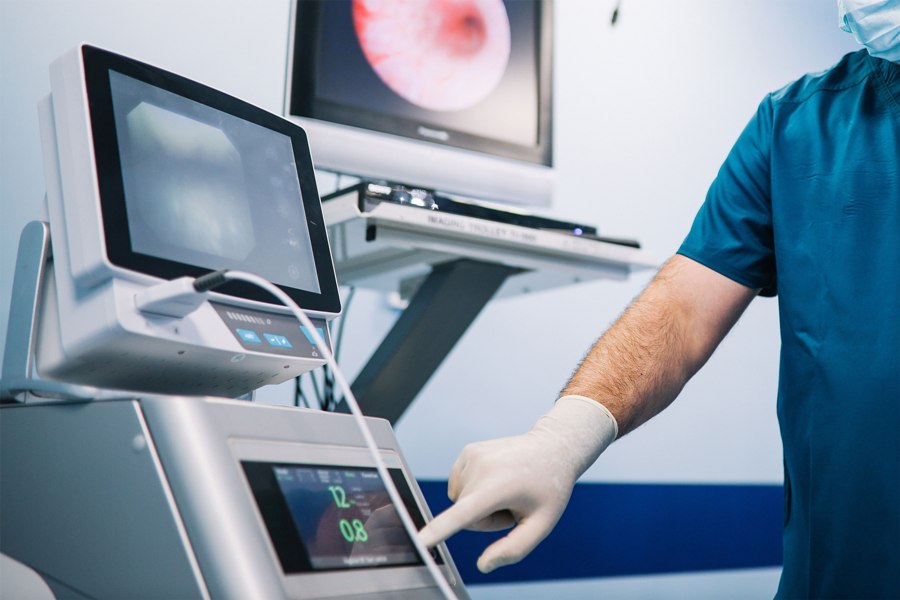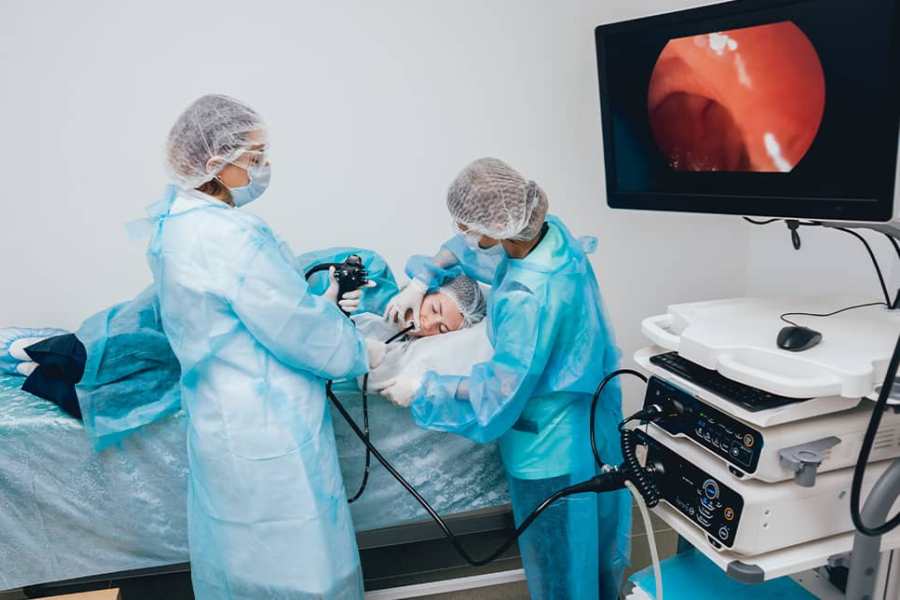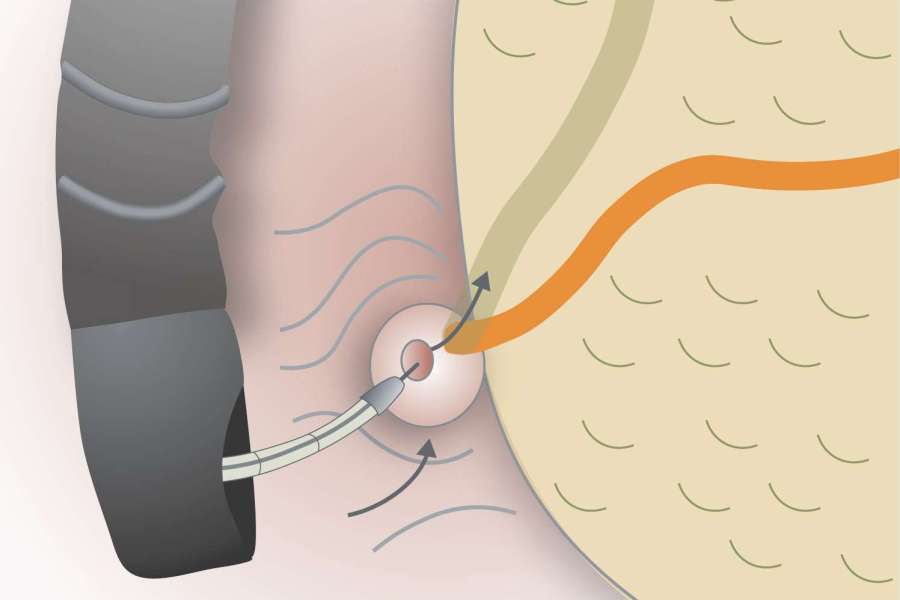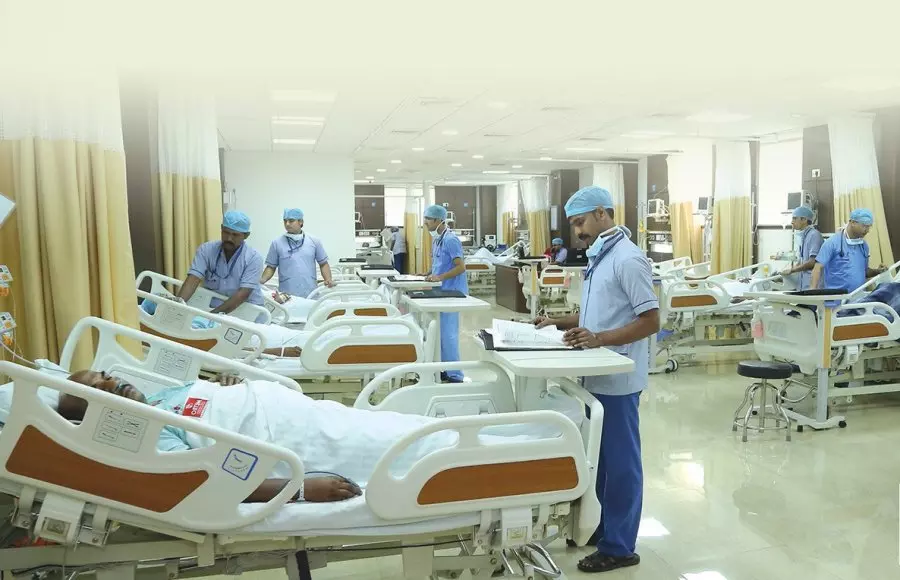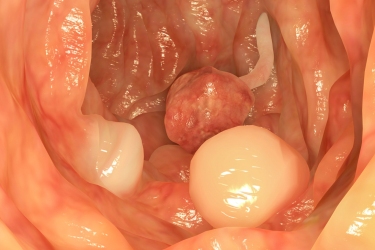
A colon polyp is a small clump of cells that forms on the lining of the colon. Most colon polyps are harmless. But over time, some colon polyps can develop into colon cancer. Colon cancer can be fatal when found in its later stages.
Anyone can develop colon polyps. You're at higher risk if you are 50 or older, are overweight or are a smoker. You're also at higher risk if you have a personal or family history of colon polyps or colon cancer.
Colon polyps don't usually cause symptoms. It's important to have regular screening tests because colon polyps found in the early stages can usually be removed safely and completely. The best prevention for colon cancer is regular screening for and removal of polyps.
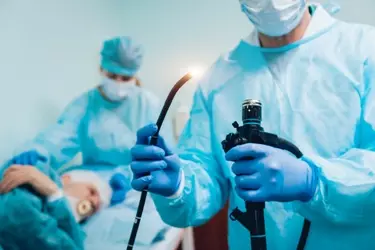
Colonoscopy is a test to diagnose diseases of the large intestine - colon or the rectum. This test is done by a Gastroenterologist who is specially trained in doing Upper GI Endoscopy and Colonoscopy. The test is done by using a special equipment called `Endoscope' costing anywhere between Rs. 15 Lacs - 50 Lacs. This machine has a thin long flexible tube which contains a high definition miniature video camera, LED Light and Biopsy equipments. The diameter of the tube is around 1 - 1.25 cm.
In colonoscopy study, this thin tube is inserted through the anus and slowly pushed to cover the entire length of the large intestine. The entire procedure takes 30-60 minutes. The doctor pushes some air or carbondioxide through the tube to inflate the colon. The powerful LED Light illuminates the inside of the rectum and the video camera sends live images on the computer monitor. Our Gastroenterologist at Bhiwani, Haryana, Dr Mayank Chugh examines the walls of the colon and picks up tissue samples if any polyps are seen on the walls of the colon. Polyps are tissue growths from the walls of the organ and can be cancerous. These tissue samples are then sent to the laboratory for examination under microscope to find the nature of the growth.
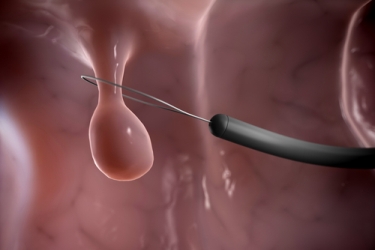
Dr Mayank Chugh at his Bhiwani centre in Haryana removes all the polyps which are seen while doing a Colonoscopy procedure. The removed polyps are then sent for biopsy examination and further treatment might be required if these polyps turn out to be cancerous.
The removal of polyps can be done in the following manner :
Polypectomy - In the early stage when they are smaller, polyps can be removed by putting a tube with a tool in the rectum and cutting them out.
Minimally invasive surgery - Polyps that are too large or that can't be removed safely during screening are usually removed surgically. This is often done by inserting an instrument called a laparoscope into the abdomen to remove the cancerous part of the bowel.
Total proctocolectomy - If you have a rare inherited syndrome, such as FAP, you may need surgery to remove your colon and rectum. This surgery can protect you from developing a life-threatening cancer.
Some types of colon polyps are more likely to become cancerous than others. A health care provider who analyzes tissue samples will look at your polyp tissue under a microscope to determine if it could be cancerous.

Our unhealthy lifestyle takes a heavy toll on the gastrointestinal health. Acidity and heart burn are the most oommon problems suffered by even young people.
These are lifestyle diseases and require lifestyle modification. The doctor needs to spend time and understand the unique problem of each patient to be able to suggest the right kind of lifestyle changes.
Dr. Mayank Chugh
Acidity & Gastric Diseases Specialist
